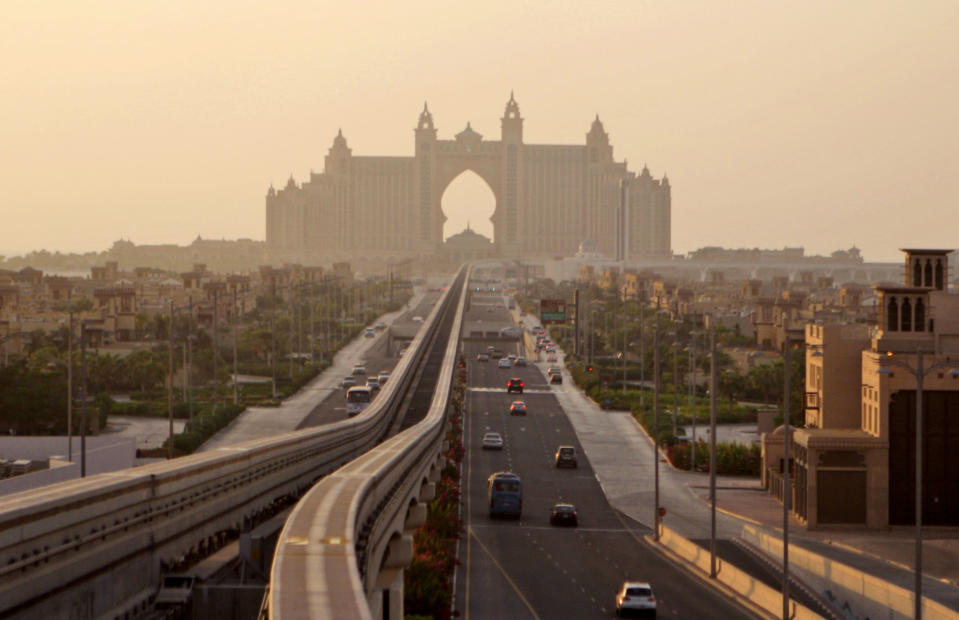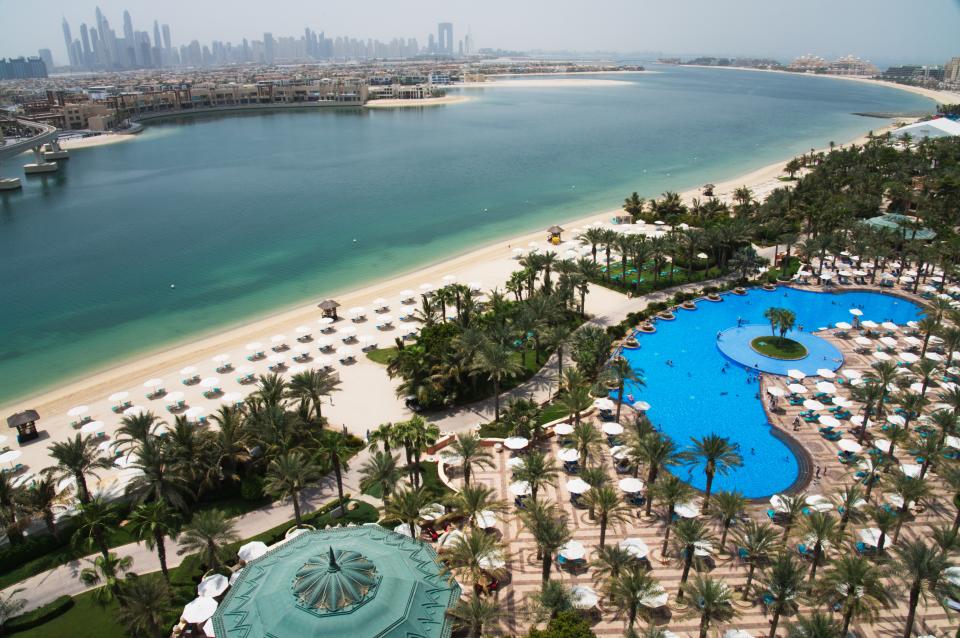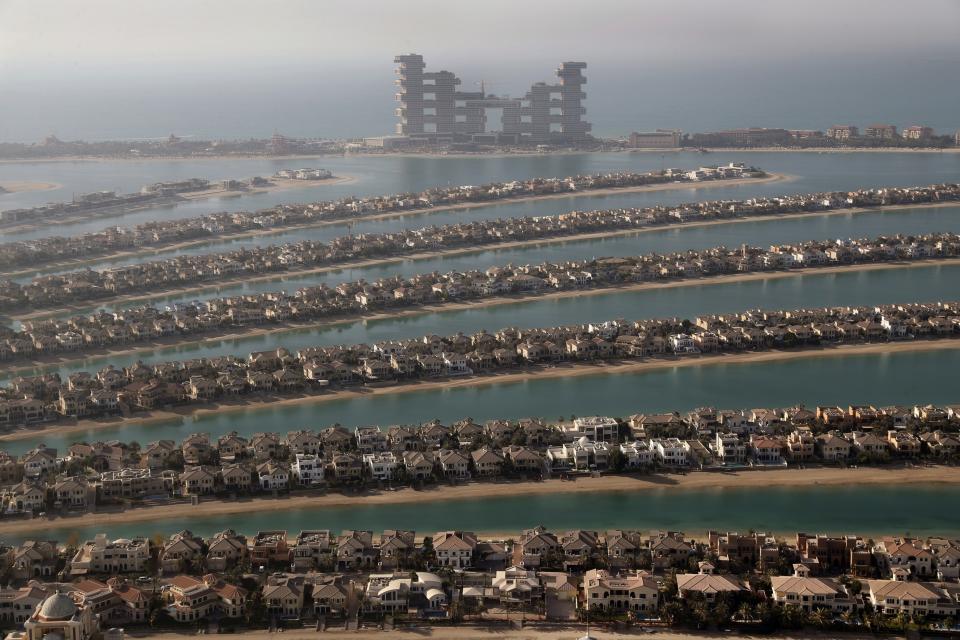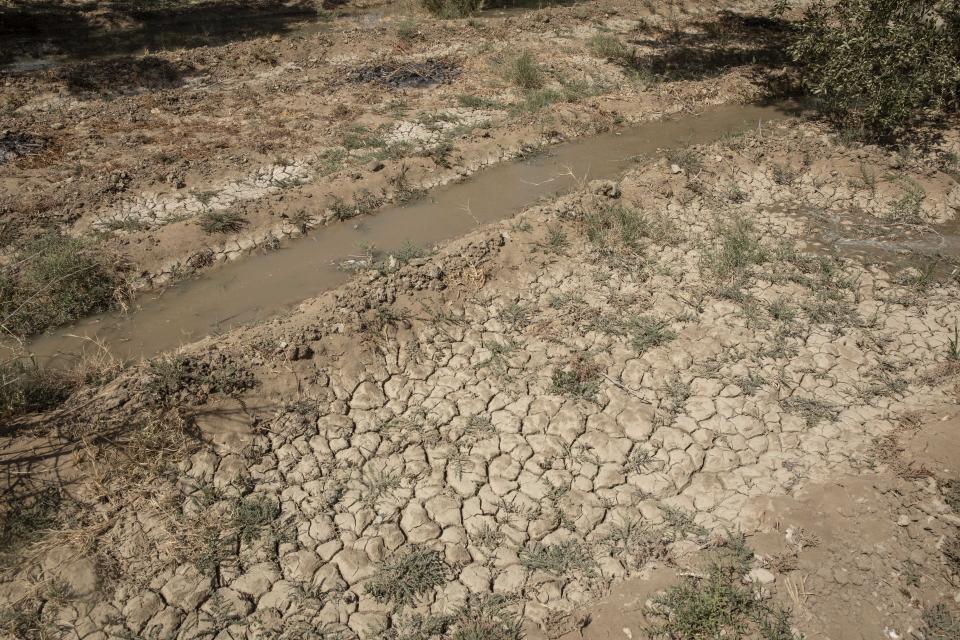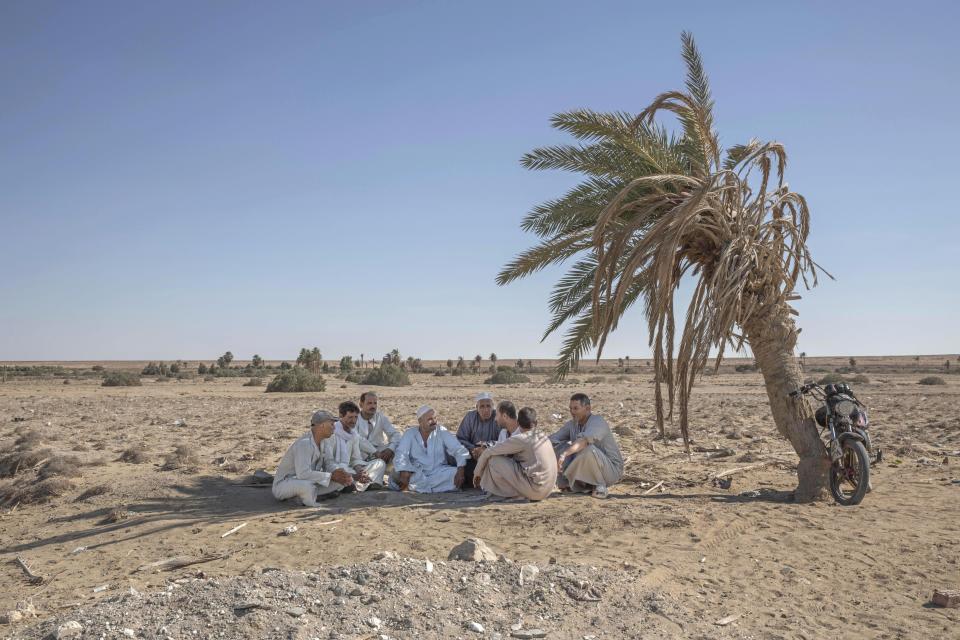Juxtaposition: Opulent resort hosts climate summit in Dubai
DUBAI, United Arab Emirates (AP) — The Middle East is the most water-scarce region in the world, but participants at an upcoming climate summit in Dubai will be ensconced in a resort with one of the world’s largest water parks, complete with artificial lagoons, encounters with dolphins and a mesmerizing aquarium with sharks, sting rays and schools of fish.
It's a striking backdrop for a climate summit aimed at tackling lack of water and other pressing issues facing the region due in part to warming global temperatures from the very fossil fuels produced by Gulf Arab states and others. The Arabian Peninsula, where Dubai sits, is grappling with menacing sand storms, rising temperatures and dangerous humidity levels.
As major world powers vow to shift to greener forms of energy, oil producers Saudi Arabia and the United Arab Emirates say they too will cut emissions within their borders, even as they vow to keep pumping oil and gas for export to fuel their economies.
Dania Cherry of Greenpeace MENA said it will not be easy for oil producers to transition away from fossil fuels.
“We understand it will take time, but we need to be more ambitious and we need to really do bigger steps on this,” Cherry said.
Across the Middle East, people are living with the impacts of climate change. Farmers in rural Egypt face severe water shortages along the Nile River. Millions of people in Syria and Iraq are at risk of losing access to water, electricity and food amid rising temperatures and record low water levels due to drought.
From the western Sahara in Morocco to the eastern stretches of the Persian Gulf in Iran, drought has sparked anger and street protests against the government. The World Bank has identified 11 countries in the region as among the world’s most water-stressed nations, including all six of the Gulf Arab energy producing states.
To discuss these challenges, the UAE is hosting a United Nations-backed climate summit next week. When people gather for MENA Climate Week, they'll be exchanging business cards and ideas in the underwater-themed halls of Dubai's landmark Atlantis hotel, a $1.5 billion resort that boasts the massive water park with aquariums and lagoons housing some 65,000 marine animals.
The stunning resort, which requires enormous amounts of fresh and desalinated water to maintain operations, is built on a man-made island so big it can be seen from space. To build Dubai's palm-shaped island, more than 100 cubic meters (3,500 cubic feet) of sand were dredged from the bottom of the Persian Gulf and millions of tons of rocks were mined from the mountains. Environmentalists say building up so much coastline has exacerbated erosion of Dubai's main coastline and destroyed turtle nesting sites in the area.
While the Atlantis on The Palm has numerous projects supporting conservation efforts, including a shark and stingray breeding and release program, the water-soaked backdrop to the climate action summit is jarring. The Atlantis Dubai declined to share information about its water usage with The Associated Press, referring instead to its marine conservation programs.
The opulence and luxury of the Atlantis, which is a major tourism draw for Dubai, also fits with the United Arab Emirates' ethos that a sustainable future doesn't mean a return to the past, but requires innovation to support economic growth and human prosperity.
The country is hosting the climate summit under its Ministry of Climate Change and Environment, a government body branded and tasked with ensuring the UAE remains ambitious and on track with its energy transition.
Still, Gulf Arab states have vowed to keep extracting oil and gas, arguing at global forums that fossil fuels are an integral part of the energy transition and cannot be phased out rapidly. They've called for hundreds of billions of dollars in annual investment in the oil and gas industry to keep up with global demand.
On the same day the climate summit opens, Dubai is hosting an energy forum elsewhere in the city with energy ministers and global oil executives to talk about energy demand and how the climate crisis is impacting energy markets.
Given the pace of climate change, said Mohammed Mahmoud, director of Middle East Institute’s Climate and Water Program. “I think it’s kicking the can down the road as they try to figure things out, but we may not have the luxury of time.”
This week, U.N. Secretary-General Antonio Guterres issued another dire warning, writing on Twitter: “We are sleepwalking to climate catastrophe.”
Cherry of Greenpeace said hosting the climate gathering in Dubai raises awareness about the effects of climate change on the region and puts the issue front and center. She cautioned, though, that it’s important the meetings are not “spreading propaganda” and actually tackling serious issues, as well as involving youth from the region.
According to World Bank data, the world's top four carbon dioxide polluters per capita are all in the Persian Gulf: Qatar, Kuwait, Bahrain and the UAE. These countries not only face scorching hot summers, but amplified heat without nighttime reprieve due to higher levels of humidity. Heat stress is amplified when people do not have the chance to cool down at night. Warmer seas could also impact the intensity of cyclones and impact fishing and marine life.
While the U.N.-backed climate week is far from the first time the region hosts a summit to tackle global warming, it marks another step toward widening the global conversation around climate change and its impact. The U.N. says similar weeks are planned for Latin America and the Caribbean, Asia-Pacific and Africa this year.
The Mideast will draw even more focus as host of the next two U.N. summits to assess progress on the Paris climate agreement, aimed at keeping global temperatures from rising to catastrophic levels.
That COP27 global gathering is taking place in November in Sharm el-Sheikh, Egypt on the Red Sea coast, where rising temperatures have bleached coral reefs, threatening the ecosystem and local tourism industry that millions of Egyptians rely on. The event will be held in Dubai in 2023.
The region hasn’t hosted a COP meeting since 2012, when Qatar became the first Mideast country to hold the event.
